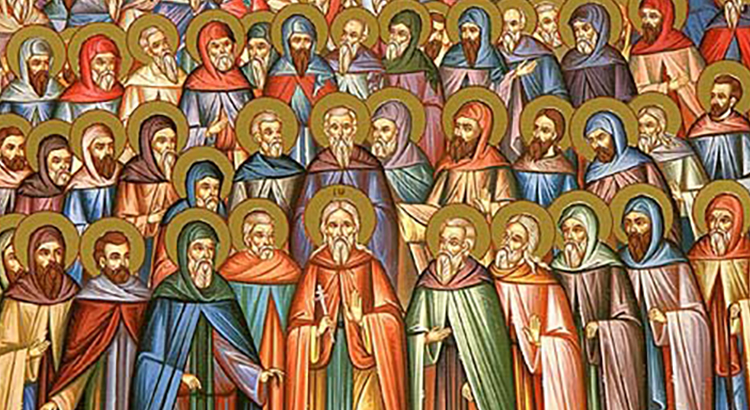Memory of the Saints and the Prophets
Reading of the Word of God
Alleluia, alleluia, alleluia
You are a chosen race,
a royal priesthood, a holy nation,
a people acquired by God
to proclaim his marvellous works.
Alleluia, alleluia, alleluia
Hebrews 12,4-7.11-15
In the fight against sin, you have not yet had to keep fighting to the point of bloodshed. Have you forgotten that encouraging text in which you are addressed as sons? My son, do not scorn correction from the Lord, do not resent his training, for the Lord trains those he loves, and chastises every son he accepts. Perseverance is part of your training; God is treating you as his sons. Has there ever been any son whose father did not train him? Of course, any discipline is at the time a matter for grief, not joy; but later, in those who have undergone it, it bears fruit in peace and uprightness. So steady all weary hands and trembling knees and make your crooked paths straight; then the injured limb will not be maimed, it will get better instead. Seek peace with all people, and the holiness without which no one can ever see the Lord. Be careful that no one is deprived of the grace of God and that no root of bitterness should begin to grow and make trouble; this can poison a large number.
Alleluia, alleluia, alleluia
You will be holy,
because I am holy, thus says the Lord.
Alleluia, alleluia, alleluia
Correction is a sign of love because it is an expression of the father who corrects his children. If we were not corrected, no change would take place in our lives. This is why the author asks the Christian community, which was in danger of weakening in faith, to regain the vigour of the Gospel: "Therefore lift your drooping hands and strengthen your weak knees, and make straight paths for your feet, so that what is lame may not be put out of joint, but rather be healed" (12:12). It is an exhortation that recalls the indispensability of education in the life of the disciples. Following the Lord, in fact, requires each one to change our heart, to change our thoughts, in short, to let ourselves be guided by the Gospel rather than by our own pride, instincts or habits. Only by obeying the Gospel and its pedagogy can we grow in wisdom and love. This is the great question of pastoral art, as the Church Fathers called it. It is a commitment that primarily concerns the "pastors," that is, those in charge of the community, so that they commit themselves to the inner growth of believers. In truth, every disciple - and therefore everyone, including "pastors" - is called to correct himself and help others grow in faith and holiness. This is why the author asks all Christians to be vigilant so that "no one fail to have the grace of God." One could say that the entire community is called to be vigilant, that is, to exercise the "episcopal" task of caring for the faith of one's brothers and sisters. Part of this vigilance also includes taking care not to let "poisonous roots" grow in the community, i.e., those egocentric attitudes that disturb its life and hinder its growth.
